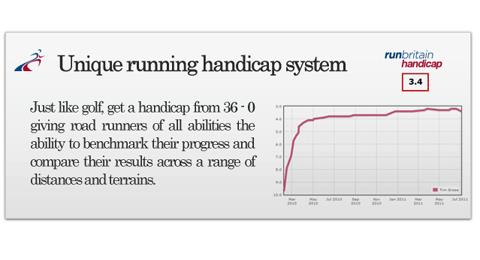Coronavirus (COVID-19) and runbritain rankings updates

As all racing and parkruns in the UK are currently suspended, we have frozen handicaps from 15th March 2020. This means that your handicap will stay the same until whenever the suspension is lifted and not rise as it would normally do if you are unable to race or parkrun for some time.
Handicap changes
Despite the above freeze you may have noticed that your handicap has changed slightly since you last looked.
This is due to a change in the algorithm by which we compute the "SSS" (Standard Scratch Score) of each race or parkrun, which attempts to rate its relative difficulty.
The algorithm was originally devised in 2010 so runners in the UK have had a handicap score for 10 years. Back then, parkrun was still quite small and the original algorithm only really used data from those who had done a number of races in order to compute the SSS scores. This meant that for many parkruns and other small races there was only a small number of "samples" to go on which, in turn, led to some SSS scores being a less than accurate measure of the actual difficulty which, in turn again, sometimes gave inaccurate improvements in handicaps.
The new algorithm attempts to improve this situation by making more use of parkrun performance data together with some other subtle changes.
We have also raised the max SSS to 10.0 from 6.0 to better differentiate the really tough parkruns and races. Further, the maximum athlete handicap has been increased from 36 to 54 to broaden the number of runners that may be able to benefit from the handicap scheme.
This means that some handicaps will improve slightly and some will increase slightly. The average change is however largely zero.
We realise this may disappoint some runners but we hope that the changes will make your handicaps more accurate and give everybody a good baseline to start from when we can continue with races and parkruns.
In the meantime, we urge all of the runbritain community to stay safe and follow the advice of Dr Noel Pollock, chief medical officer at British Athletics, who has written this article in Athletics Weekly with co-authors Dr James Hull, Dr John Rogers, Dr Nathan Lewis and Dr James Brown. The article offers guidance on physical activity, immune function and what to do if you get COVID-19.
We look forward to seeing your racing results when things get back to normal.
